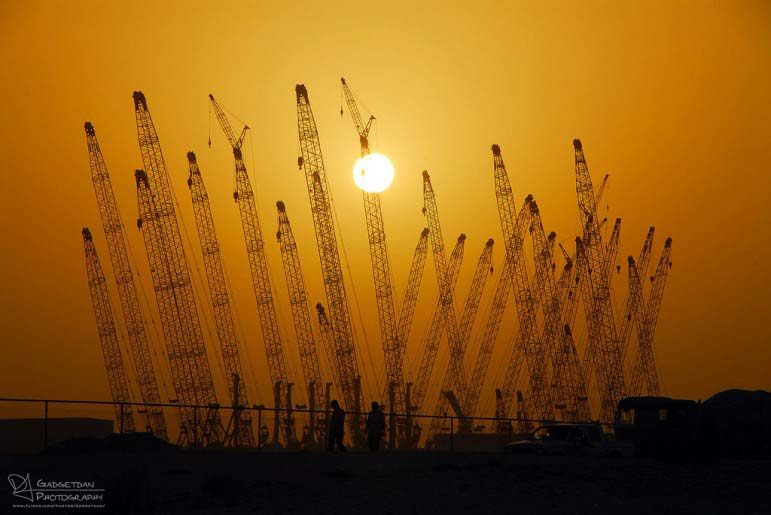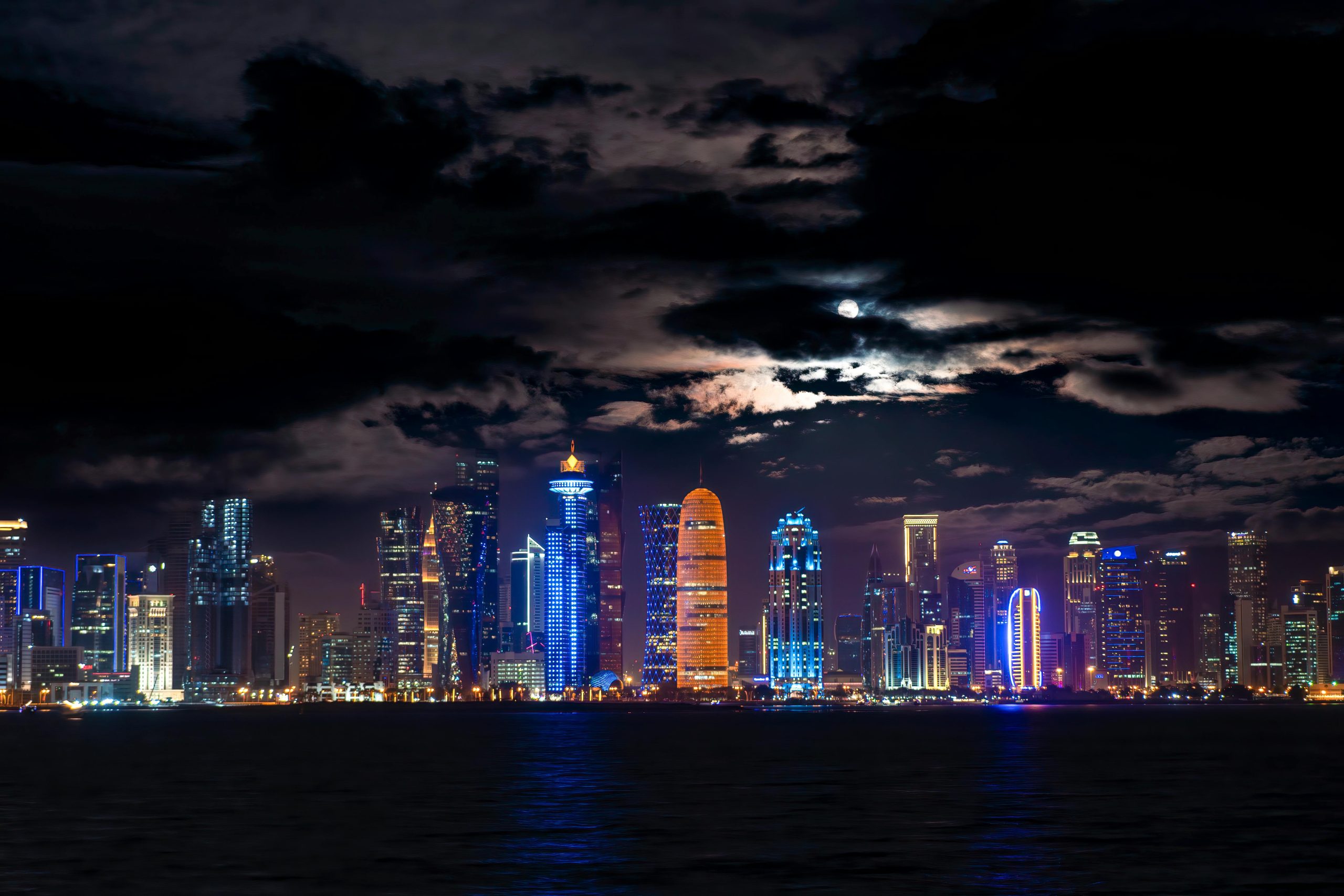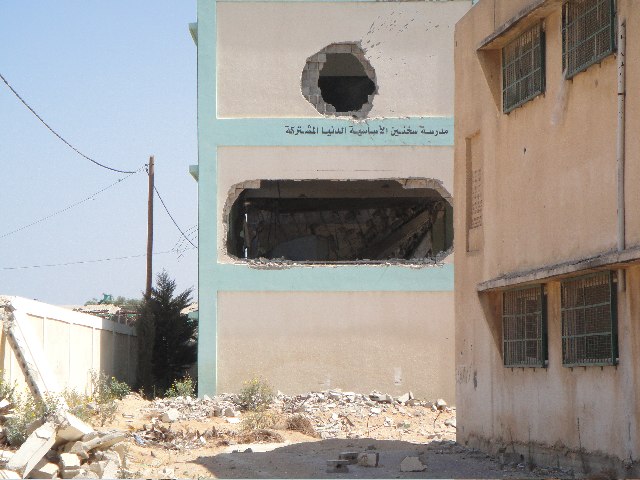
Shedding new light on a recent study warning that the Gulf region may become unsafe for humans by the end of this century, researchers at Qatar University’s Social and Economic Survey Research Institute (SESRI) are examining Qatar residents’ views about the impacts of – and possible solutions to – the predicted temperature rise.
In this piece, they warn that Doha is heating up even faster than once thought, and share survey results showing that Qatar residents support action to prevent global warming and its possibly catastrophic effects on the region.
A study on the Gulf region’s potentially dangerous temperature warming published last Monday in the prestigious journal Nature Climate Change naturally made the headlines of a number of local media outlets.
And rightly so – because unfortunately, the science behind the article is not at all exaggerated.

The Gulf cities – and Doha in particular – are almost certain to suffer from climate warming during the summers in the years and decades to come.
Indeed, already several years ago, a meteorologist from Oman completed a milestone study of climate change in the Arabian Peninsula at the University of Oxford, and his scientific findings were rather frightening.
Dr. Said Al-Sarmi found that the rate of temperature increase in the GCC states was higher than the global mean temperature increase.
In other words, Arabia is warming up significantly faster than the rest of the world.
One might wonder about the practical impact of a difference of only a few degrees Celsius; yet the effects are real.
Even this slight change in average temperature could mean the difference between hot days and intolerably hot days—the kind of heat with the power to harm or even kill vulnerable groups such as the sick and elderly.
Getting worse already
The Gulf region reacts differently to the global climate change phenomena. This is particularly true in the urban centers where the majority of GCC residents reside.

For this reason, the findings of Monday’s study are arguably too optimistic: its model of temperature rises does not consider the additional heat that will result from the further expansion of fast-growing cities like Doha, Abu Dhabi, and Dubai.
When a city grows, it replaces a natural environment with a large quantity of heat-absorbing concrete and asphalt for buildings and roads. So the more it expands, the more heat it absorbs, making it significantly hotter than its surroundings.
This phenomenon, known as the Heat Island Effect, is already affecting Doha and the region’s other capitals. And with a business-as-usual approach to urban development, it is only set to get worse.
It is in this context that recent survey findings from the Social and Economic Research Institute (SESRI) at Qatar University are especially interesting.
More than 1,200 Qatari and expatriate respondents were surveyed in October in part of SESRI’s quarterly telephone survey. The results reveal, in the first place, strong public support for more green areas in Qatar.

Nearly two in three respondents (63 percent) replied that they would like to see an increase in the number of parks and other green spaces in Qatar, “even if it means less infrastructure and development (e.g., wider roads or shopping centers).”
Only 24 percent said they would prioritize infrastructure and development outright, while the remainder (13 percent) preferred some compromise between the two.
While the preference for green spaces was relatively higher among expat respondents compared to nationals, the overall picture is clear: people in Qatar do want more green spaces.
Public sentiment
SESRI’s latest survey findings also shed light on how people in Qatar perceive the risks of climate change, and how these perceptions are influenced in important ways by the framing of the issue.
In the survey, Qatari and expatriate respondents were randomly assigned two different descriptions of the problem of climate change: one that poses the issue as a matter of “climate change” generally, and one that describes it as a specific problem of “global warming.”

As shown in previous academic studies conducted mainly in Western contexts, the term “global warming” is associated with greater public understanding, emotional engagement and support for personal and national action than the term “climate change.”
When asked about the issue of “global warming,” 39 percent of Qataris said they considered the problem a “very serious” issue, with only a combined 18 percent deeming it not very or not at all serious.
By comparison, when asked to assess the more general issue of “climate change,” only 29 percent of citizens say they believe it is a “very serious” problem, and a full one-third say it is “not too serious” (18 percent) or “not serious at all” (15 percent).
Another notable finding is that white-collar expats are considerably more likely than Qataris (20 percent more in relative terms) to deem climate change and global warming a “very serious” or “somewhat serious” problem, regardless of the terminology used.
Yet overall, the results still show that 83 percent of the polled population is concerned by the effects of global warming, a fact that should send a clear signal to the relevant authorities.
Time running out
Already, Ashghal and Kahramaa are working with researchers at the SESRI Policy Unit to adapt their strategies and resources to better prepare Doha to meet environmental challenges like pollution and temperature change.
Yet time is running out.
Climate change is already seriously affecting the GCC countries.

Consider for instance the devastating floods in Jeddah in 2009 or the deadly heatwave throughout Saudi Arabia the following year.
Think also of cyclone Ashobaa and resulting flooding that struck Oman last summer or of the Super Cyclone Gonu storm surge, which hit Oman in 2007, killing 50 and causing damage estimated at $4.2bn.
The list of extreme environmental events in the GCC is already quite extensive and, worryingly, increasing in rate of recurrence and amount of damage caused.
The warming of the climate might be the single most feared effect of climate change in Qatar, but it is certainly not the only one.
The latest survey results from SESRI make it clear to all that a majority of people living in Qatar – both Qataris and non-Qataris – want a friendlier living environment, with more green spaces to cool the city and, arguably, put quality of life at the center of the country’s plans for development.
Thoughts?
Dr. Laurent A. Lambert is Senior Policy Analyst at the Policy Unit of the Social and Economic Survey Research Institute (SESRI), Qatar University, and Dr. Justin Gengler is the Research Program Manager of SESRI’s Policy Unit.







